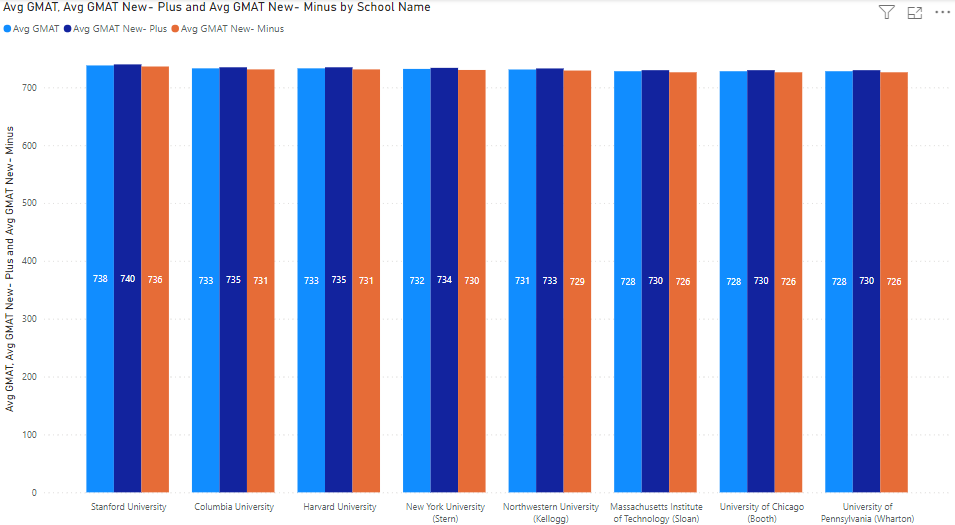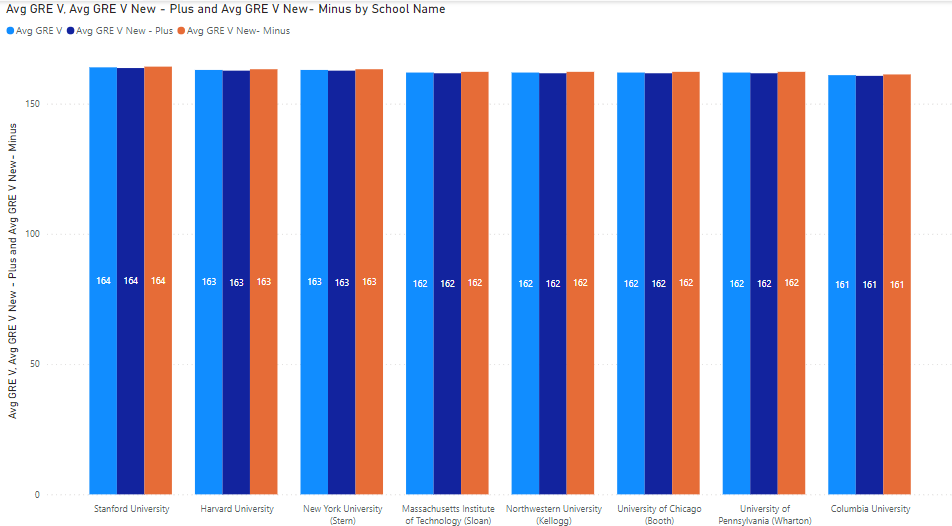"This is why you should not take GRE"
When applying to their dream MBA program, many individuals often wonder whether the GMAT or GRE is preferred for admissions. Some find themselves performing better on one exam over the other, leading to the question: If someone struggles with the GMAT (or its Focus Edition), is there a downside to switching to the GRE?
Honestly, if the GMAT isn't yielding results and you can excel on the GRE, go for it! I did and benefited, and you can too!
But for those just starting their prep journey, how do you decide between giving your all to the GMAT or the GRE?
In this post, I'll provide a logical framework to help you decide.
Wearing my analytics hat, I wrangled business school data for M7 schools. I wanted to see how admitting 10% more candidates would affect average GMAT and GRE scores under different scenarios:
- 10% scoring 20 points higher than the current GMAT average
- 10% scoring 20 points lower than the current GMAT average
- 10% scoring 3 points higher than the current GRE average
- 10% scoring 3 points lower than the current GRE average
What did I find? Keep reading to uncover the correlation with the title!
Increasing or decreasing GRE scores resulted in negligible changes in average scores. However, increasing GMAT scores raised the average by 2 points, while decreasing GMAT scores lowered it by 2 points.
This implies that individuals with significantly higher or lower GMAT scores can notably impact a school's average GMAT, unlike with the GRE. This is logical as well, because of GMAT's 10-point increments compared to the GRE's 1-point increments.
Business schools strive to maintain high average test scores for competitiveness in MBA rankings. Consequently, they prefer not to admit candidates with significantly lower GMAT scores unless their overall profile aligns closely with the school's preferences. Conversely, schools are less concerned about average GRE scores as long as they remain balanced.
We can therefore confidently conclude that a high GMAT score is generally preferable to a high GRE score. However, a low GRE score would be better than a low GMAT score to keep you competitive for that sought-after seat.
Interested in exploring the data yourself? Drop a comment below, and I'll send you a PM with the Excel sheet for calculations

Below, you will find the average GMAT and GRE scores of the top business schools and the impact of adding new candidates with plus and minus scores:




















